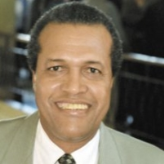Officials
Back to Officials
Back to Nicaragua


Offical

Name: Campbell, Francisco
Current Position: Ambassador
Ambassador from Nicaragua: Who is Francisco Campbell?
Since May 2010, the ambassador from Nicaragua to the United States has been Francisco Obadiah Campbell Hooker, an experienced diplomat and academic who previously served in Nicaragua’s embassy in the early 1980s. The Nicaraguan opposition objected to the U.S. government’s acceptance of Campbell’s diplomatic credentials because the National Assembly had not confirmed his nomination, but Campbell has served without major incident. He has, however, been accused of nepotism because his wife, a diplomat in her own right, has been hired to work at the Nicaraguan consulate, also located in Washington, DC.
Born in the Atlantic coast city of Bluefields, Nicaragua, Campbell is a 1967 alumnus of the Instituto Cristóbal Colón in Bluefields. He earned a B.A. in Political Science at the University of Hawaii in 1974, and a Masters in International Relations at the same university in 1975. Campbell was Professor of Sociology at the Autonomous University of Nicaragua from 1976 to 1978.
An activist in the Sandinista National Liberation Front (FSLN), which was the main opposition to the corrupt, U.S.-backed regime of Anastasio Somoza, Campbell went into government service following the Nicaraguan Revolution in 1979. From 1982 to 1986, he served as Deputy Chief at Nicaragua’s Embassy in Washington DC, overseeing outreach activities and congressional relations, and served concurrently at Nicaragua’s Permanent Mission at the United Nations.
Campbell served as Nicaragua’s Ambassador to Zimbabwe from 1986 to 1990, when Zimbabwe held the Presidency of the Non-Aligned Movement. Campbell was concurrently Ambassador to Tanzania, Angola and Zambia, as well as Representative to the African National Congress and to the Southwest African People’s Organization, revolutionary organizations similar to the FSLN that led ultimately successful efforts to overturn the apartheid regime in South Africa and liberate Southwest Africa, now the independent nation of Namibia, from the domination of South Africa.
Leaving government service after the elections of 1990 turned out the Sandinista Party, Campbell focused on human rights and the development of his native Atlantic coast region. In 1990, he was a founder of the Foundation for the Autonomy and Development of the Atlantic Coast of Nicaragua, with which he has been involved ever since. In 1992 he also helped found the University of the Autonomous Regions of the Caribbean Coast of Nicaragua, where he was Vice-Chancellor General from 1992 to 1996. He has also served as President of the Center for Human, Civil and Autonomous Rights. In 1997, he won election as a Deputy to the Central American Parliament, based in Guatemala, where he has served as Clerk of the Board (1997 to 1998, 2002 to 2003), President of the International Relations Committee (1999 to 2002) and Vice President of the Board (2007 to 2008).
Campbell is married to Miriam Hooker.
El embajador en Washington (La Prensa) (in Spanish)
- Latest News
- D.C. Public Schools will Teach all Second-Graders to Ride a Bike
- New Rule in Germany Limits Sales of Sex-Themed E-Books to 10pm to 6am
- What Happened to the 6-Year-Old Tibetan Boy the Chinese Government Kidnapped 20 Years Ago?
- U.S. Ambassador to Turkey Photoshops his Hair Color to Mock Turkish Mayor
- Mystery Artist Calls Attention to Unfixed Potholes by Drawing Penises around Them





